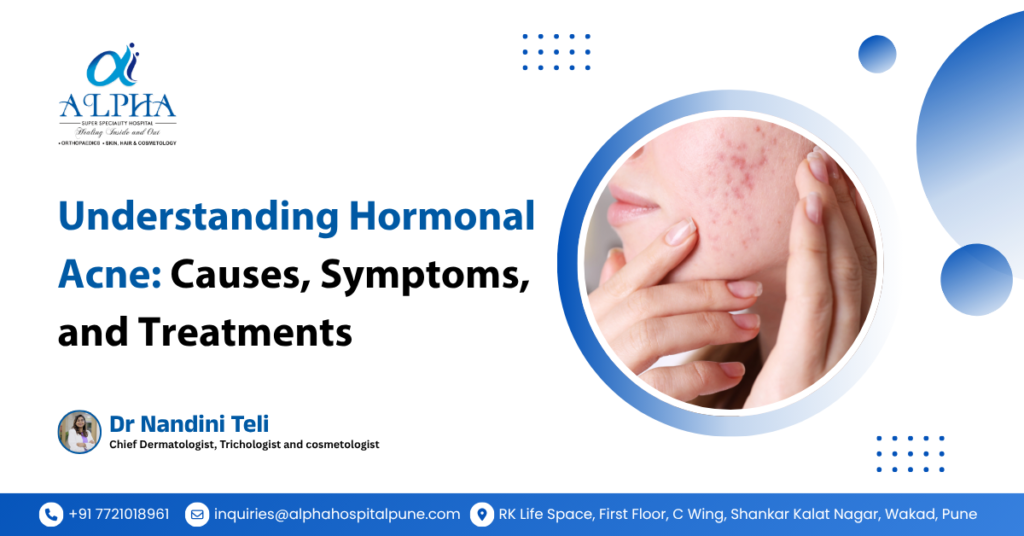Hormonal acne is one of the most common skin concerns among teenagers and adults. It often appears when there’s an imbalance in hormones such as androgens, estrogen, or progesterone. Understanding why it happens and how to manage it can help you achieve clearer, healthier skin.
What Is Hormonal Acne?
Hormonal acne is acne caused by fluctuations in your body’s hormone levels. It typically appears on the lower part of the face — including the jawline, chin, and neck — and can occur during puberty, menstruation, pregnancy, or menopause. Unlike typical acne, hormonal acne is often deeper, more inflamed, and longer-lasting.
Causes of Hormonal Acne
Several hormonal changes and lifestyle factors can trigger or worsen acne:
- Increased Androgen Levels:
Androgens stimulate excess oil (sebum) production, clogging pores and causing breakouts. - Menstrual Cycle:
Hormone fluctuations before or during menstruation often cause acne flare-ups. - Polycystic Ovary Syndrome (PCOS):
Women with PCOS commonly experience hormonal acne due to elevated testosterone levels. - Stress:
High stress increases cortisol, which can stimulate oil glands and worsen acne. - Diet and Lifestyle:
Excess sugar, dairy, and processed foods can increase insulin levels, influencing hormones and triggering acne.
Common Symptoms of Hormonal Acne
Hormonal acne can present in various forms, including:
- Deep, painful cysts or nodules
- Acne around the jawline, chin, and neck
- Increased breakouts during your menstrual cycle
- Oily skin and clogged pores
- Post-inflammatory pigmentation and acne scars
Effective Treatments for Hormonal Acne
1. Topical Treatments
- Retinoids: Help unclog pores and promote cell turnover.
- Benzoyl Peroxide: Reduces bacteria and inflammation.
- Salicylic Acid: Exfoliates dead skin cells and clears pores.
2. Oral Medications
- Hormonal Therapy: Birth control pills or anti-androgen medications (like spironolactone) help balance hormones.
- Antibiotics: Used temporarily to control inflammation and bacteria.
3. Advanced Dermatological Treatments
- Chemical Peels: Remove dead skin cells and lighten acne marks.
- Laser Therapy: Reduces acne-causing bacteria and scars.
- Microneedling: Stimulates collagen production for smoother skin.
4. Lifestyle Modifications
- Maintain a balanced diet rich in antioxidants.
- Reduce stress through yoga, sleep, and mindfulness.
- Follow a consistent skincare routine recommended by your dermatologist.
Preventive Tips for Hormonal Acne
- Wash your face twice daily with a gentle cleanser.
- Avoid touching or popping pimples.
- Use non-comedogenic makeup and sunscreen.
- Stay hydrated and maintain good gut health.
Dr. Nandini Teli’s Expert Advice
“Every case of hormonal acne is unique. Identifying the root hormonal cause is the first step toward long-term relief. With personalized skincare and targeted treatment, clear and glowing skin is possible.”
About Dr. Nandini Teli
Dr. Nandini Teli is a leading Dermatologist and Aesthetic Specialist known for her expertise in treating acne, pigmentation, hair loss, and skin rejuvenation. With a patient-centric approach, she combines medical expertise with modern skincare treatments for lasting results.

